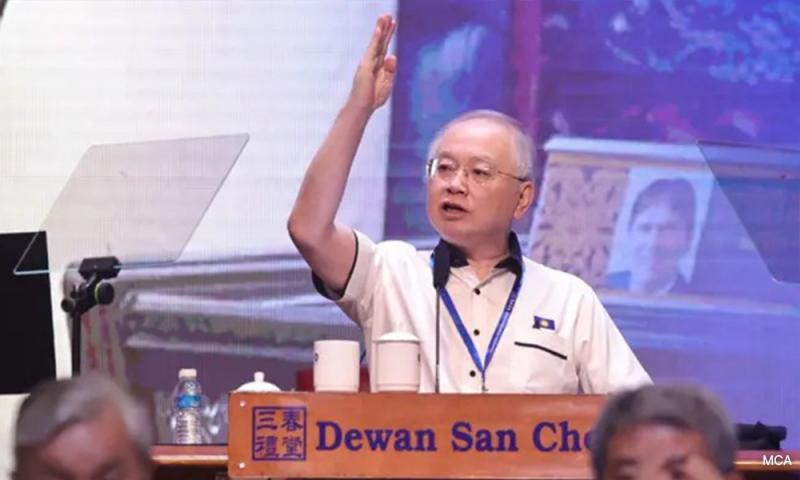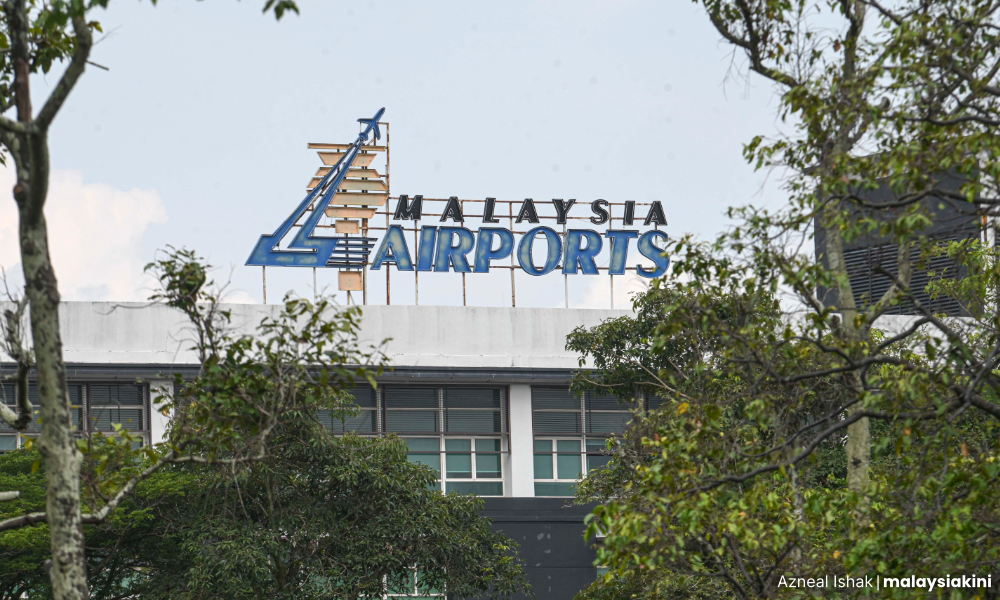
'Baloney': MCA chief pans EPF on sell-and-buy move of MAHB shares
Published: Jan 18, 2025 9:23 PM
Updated: 12:24 AM
Summary
Wee Ka Siong dismissed the Employees Provident Fund’s explanation for selling its stake in Malaysia Airport Holdings Berhad (MAHB) at a lower price and repurchasing it at a premium after a short period.
“I’m sorry to use this word but EPF’s explanation is just baloney,” said the MCA president in a video on Facebook today.
On Jan 15, EPF said its decision to make a voluntary general offer for MAHB’s shares at RM11 per share as part of a consortium reflects a separate, long-term, and strategic plan aimed at achieving sustainable growth and returns.
It added that, as EPF is committed to good governance, it also implements a “Chinese Wall” policy to ensure its fund managers do not have access to any important non-public information such as acquisition offers.
Updated: 12:24 AM
Summary
- MCA president Wee Ka Siong dismisses the Employees Provident Fund’s explanation for selling its stake in Malaysia Airport Holdings Berhad at a lower price and repurchasing it at a premium in a short period.
- He asks the EPF why it used the “Chinese Wall” strategy if it resulted in losses to its contributors.
- The Ayer Hitam MP also asks who greenlit the EPF’s decision to embark on the shares deal.
Wee Ka Siong dismissed the Employees Provident Fund’s explanation for selling its stake in Malaysia Airport Holdings Berhad (MAHB) at a lower price and repurchasing it at a premium after a short period.
“I’m sorry to use this word but EPF’s explanation is just baloney,” said the MCA president in a video on Facebook today.
On Jan 15, EPF said its decision to make a voluntary general offer for MAHB’s shares at RM11 per share as part of a consortium reflects a separate, long-term, and strategic plan aimed at achieving sustainable growth and returns.
It added that, as EPF is committed to good governance, it also implements a “Chinese Wall” policy to ensure its fund managers do not have access to any important non-public information such as acquisition offers.

Employees Provident Fund building
“This policy serves as an information barrier between different departments within the EPF, preventing the disclosure of material non-public information and maintaining the integrity of its market activities,” it said as reported by Bernama.
However, Wee was unimpressed by EPF’s explanation.
For starters, the MCA leader pointed out that the “Chinese Wall” is used by the banking sector to separate information involving two different departments.
“But EPF is an institution that manages investments… its role is different from a bank and they involve the same department, which is investment.
“If it involves staffers or the same department, those managing the funds should gather data from across the world using various channels and share it to make the right decision and bring profits to its contributors… the context is different.
“And what’s the point of using the ‘Chinese Wall’ when you only incur losses to the tune of RM500 million to your contributors?” Wee asked.
According to Investopedia, the “Chinese Wall” is an offensive term used to describe a virtual barrier blocking information between departments to prevent business activities that are ethically or legally questionable.
Many countries have replaced the term with “Ethical Wall”.
Who greenlit the deal?
Meanwhile, Wee also panned EPF’s argument that it had no choice but to go ahead with the process to pay dividends to its contributors.
The Ayer Hitam MP said the issue was no longer about the RM11 per share general offer but who instructed the EPF to sell its MAHB shares at a cheap price.
“This policy serves as an information barrier between different departments within the EPF, preventing the disclosure of material non-public information and maintaining the integrity of its market activities,” it said as reported by Bernama.
However, Wee was unimpressed by EPF’s explanation.
For starters, the MCA leader pointed out that the “Chinese Wall” is used by the banking sector to separate information involving two different departments.
“But EPF is an institution that manages investments… its role is different from a bank and they involve the same department, which is investment.
“If it involves staffers or the same department, those managing the funds should gather data from across the world using various channels and share it to make the right decision and bring profits to its contributors… the context is different.
“And what’s the point of using the ‘Chinese Wall’ when you only incur losses to the tune of RM500 million to your contributors?” Wee asked.
According to Investopedia, the “Chinese Wall” is an offensive term used to describe a virtual barrier blocking information between departments to prevent business activities that are ethically or legally questionable.
Many countries have replaced the term with “Ethical Wall”.
Who greenlit the deal?
Meanwhile, Wee also panned EPF’s argument that it had no choice but to go ahead with the process to pay dividends to its contributors.
The Ayer Hitam MP said the issue was no longer about the RM11 per share general offer but who instructed the EPF to sell its MAHB shares at a cheap price.

“And who agreed to repurchase them at a rate 80 percent higher than the price sold?
“Who profited from this? And who incurred losses… obviously, it’s the contributors,” he said.
Yesterday, the Public Accounts Committee (PAC) announced it will hold proceedings in February to examine the management of Malaysia’s airports under the Finance Ministry, Transport Ministry, Khazanah, and EPF.
“We anticipate that the proceedings will summon over 10 witnesses, consisting of all stakeholders involved in airport management in Malaysia,” its chairperson Mas Ermieyati Samsuddin said.
Something fishy going on in EPF plus possibly other Government agencies acting in collusion
ReplyDelete